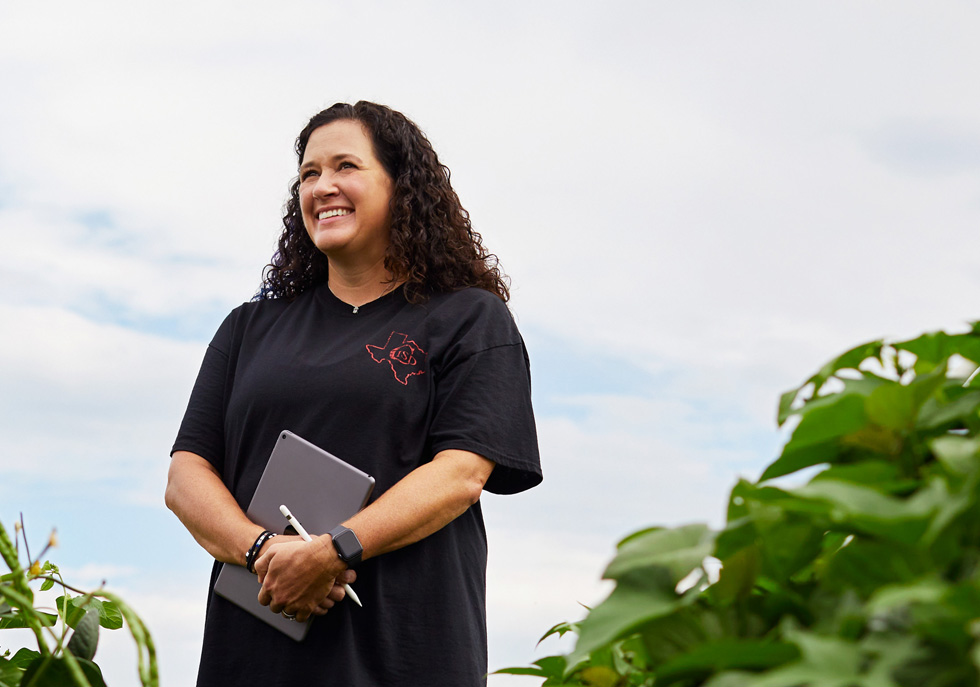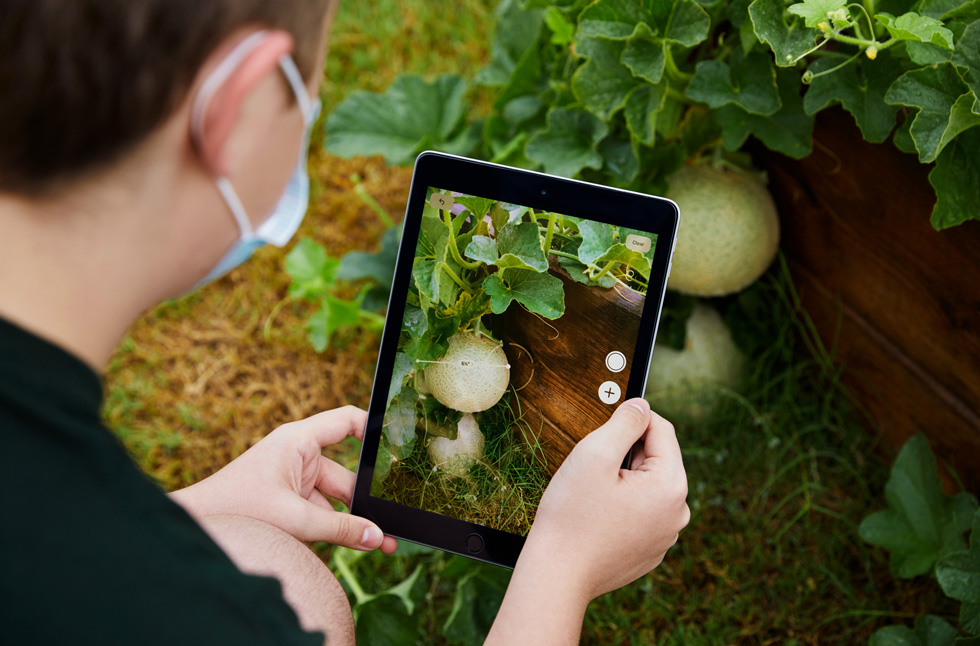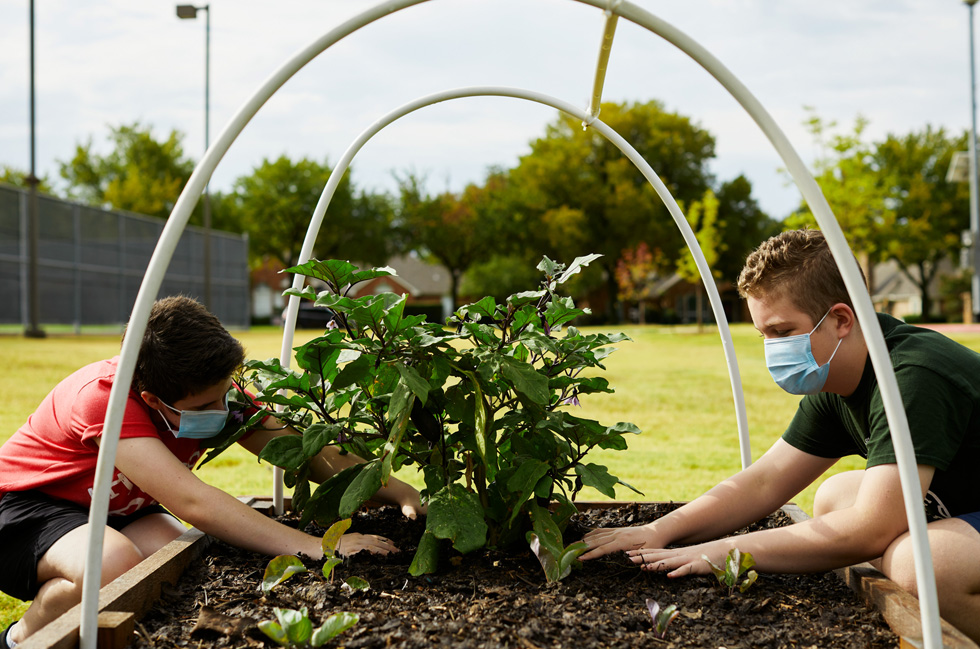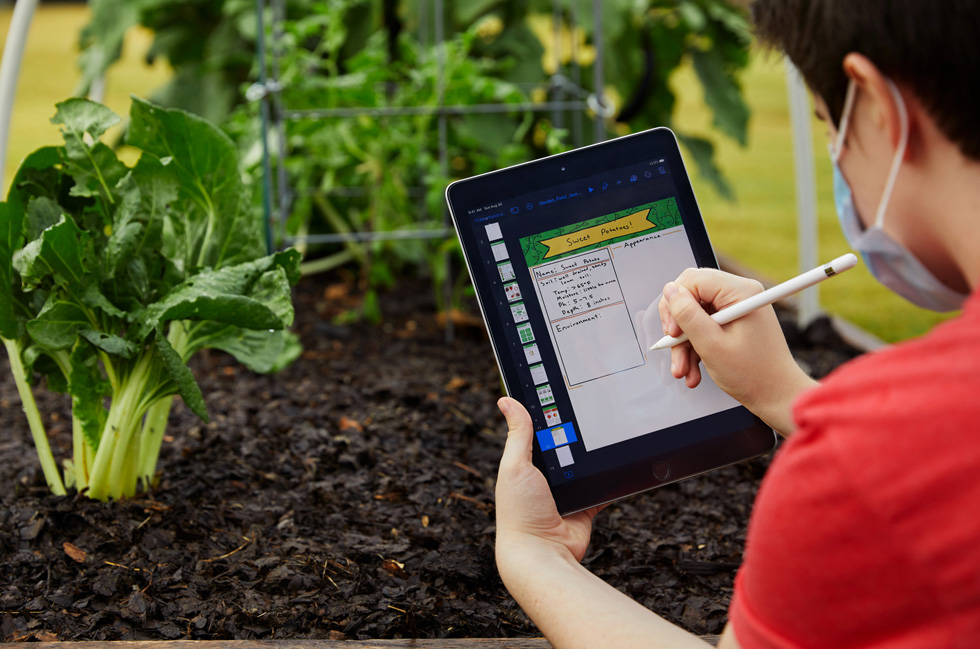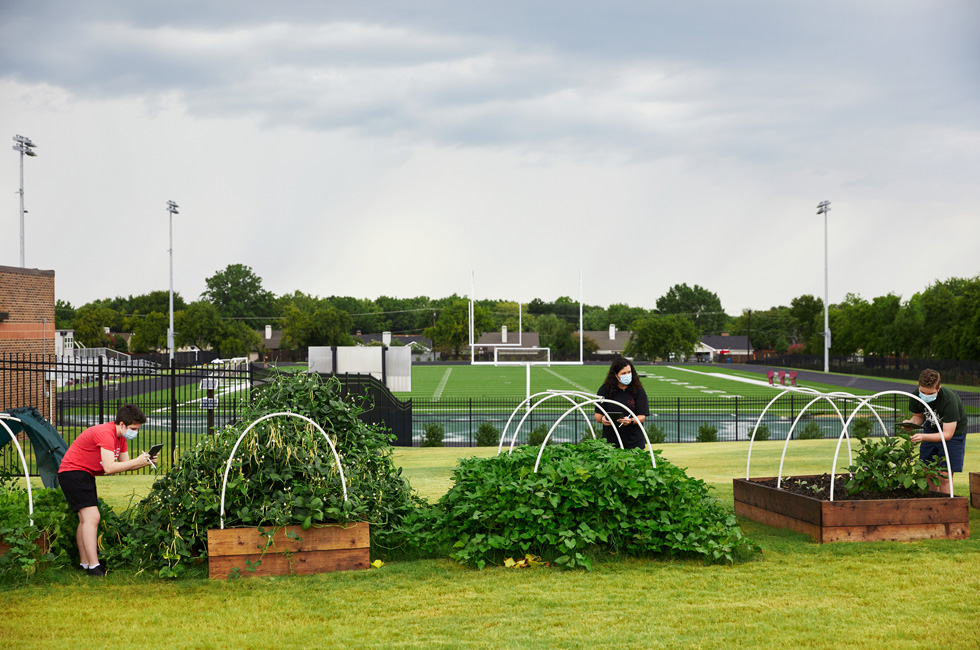Kiemelt
02 szeptember 2020
Sowing new seeds:
Dallas science teacher brings students closer to nature with iPad
Jodie Deinhammer is a problem solver. This fall, the Coppell Middle School East science teacher and Apple Distinguished Educator based in Dallas, Texas, is teaching the school’s first gardening elective to eighth graders who will help tend the school’s community garden. Never mind the fact that the class is being taught remotely and students can’t visit the garden during school hours just yet. Deinhammer has long embraced technology in the classroom, equipping her students with both a practical hands-on learning experience and critical thinking skills since the district went one-to-one with iPad in 2014.
“Students having access to iPad has changed the way learning looks in my classroom,” she says. “With iPad, each student can design their own learning path and use resources and accessibility features that cater to their individual needs. … They can create infographics, videos, or drawings, compose music, or write to show learning and growth over time. There’s a lot more of an individual component to education through technology.”
Deinhammer, who has taught with the Coppell Independent School District throughout her entire 25-year teaching career, believes technology can help students develop key problem-solving skills and the motivation to learn independently.
“With gardening, there’s a lot of problem solving that has to go into it,” Deinhammer says. “Our driving question for gardening is, How can we improve our garden space to make it more environmentally friendly and encourage more visitors, from more people in our community, to native animals and wildlife. I believe this challenges the students to think of the garden as a place to learn and a place to help others. We want our garden to be not only a place to learn how to protect the environment, but a place that’s inviting to all.”
Since the Coppell Middle School East’s sustainability club — co-led by Deinhammer — planted the initial garden last year, the school donates its harvest to a Metrocrest Services community center in Coppell, which helps families and surrounding communities in need. “The more we can harvest, the more help we provide to our community,” says Deinhammer.
Last year, inspired by the Everyone Can Create curriculum, Deinhammer developed and recently released the “Everyone Can Create in Science” book with fellow Apple Distinguished Educators. Many of those concepts are being applied to the gardening class, as Deinhammer believes creativity and flexible learning encourages students to grow. She uses iPad to design lessons and assignments for each of her students in a format — audio, visual, or written — that works best for them. Students capture their findings in a digital field guide created in Keynote, combining all of their work in a book to be shared with future gardening classes and the local community.
“The portability of the iPad allows us to work in the garden and use data collection sensors, the camera and magnifier, and the Seek app by iNaturalist to classify and identify garden weeds or bugs that we would otherwise not know,” she says. “iPad allows kids to see a world literally through a new lens, from magnified images to time-lapse videos. They can capture a world around them that they may not have noticed in the past. I want kids to notice and appreciate the small details that they may otherwise overlook.”
Stayton Slaughter, a student in the gardening class and a co-leader of the school’s sustainability club, which started the garden last year, is a fan of Deinhammer’s teaching style. “When I get to create my own final product, I can make something I’m truly proud of,” he says. “When I go to the garden, I can take pictures; I can make observations with my iPad or iPhone. Learning digitally as well as physically gives me the resources and tools to make my own decisions, my own observations, and my own creations for class. It’s a more enriching learning experience.”
For their first assignment, Stayton and his classmates submitted observations of two similar things in their environment in a format of their choosing. Stayton chose cacti and, using the Camera and Measure apps on iPad, captured his findings in an infographic drawn in Keynote. The class is currently examining sweet potatoes, the school’s next harvest. Students will explore everything from how to plant them to the ideal soil pH and moisture levels needed to grow them. The students are interviewing community farmers and master gardeners on iPad to record and share their knowledge, and visiting the garden outside school hours to examine their crops’ current conditions, track their growth, and turn over compost.
As Stayton describes it, his love for gardening was an accident. After starting a compost pile with some potatoes in his backyard, he noticed they started growing and didn’t know what to do with them. He now grows herbs, more potatoes, and sunflowers. “The environment is something that we need to protect,” he says. “Everything that we have — our clothes, our medicines, our materials, our iPads — is made from things from the environment. It’s important to make that connection to things in your everyday life, so you can make a better connection to your own actions.”
Another student, Annabeth Hook, signed up for the gardening class to understand why certain plants require different types of care. She also sees the value in learning about the environment from Deinhammer. “She’s a big advocate for climate change awareness and taking care of the environment,” Annabeth says. “We need to turn ourselves around, or at least try to, and take care of our environment ’cause it could mean the end of the world for us.”
Both Stayton and Annabeth gravitated toward Deinhammer’s teaching approach. Deinhammer hopes that her student-centered curriculum will spark the curiosity needed for her students to create their own learning journeys for the school year and beyond.
“I want the kids to explore community needs,” Deinhammer says. “How can our garden help our community in more ways? What can we do to encourage future generations of gardeners in our schools? I hope by the end of the year, students are challenging themselves to see the world in a different way.”
Cikk megosztása
Images of Apple Distinguished Educator Jodie Deinhammer

